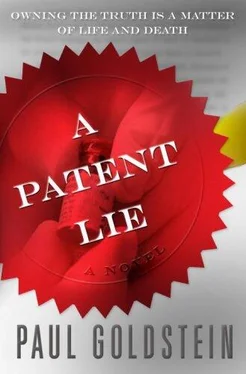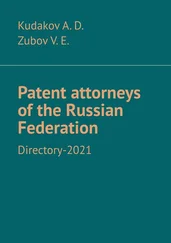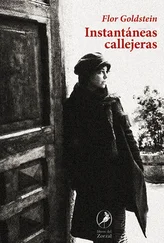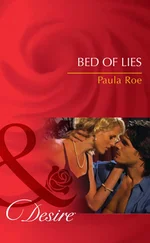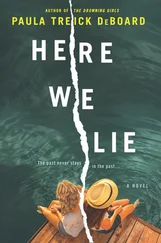Paul Goldstein - A Patent Lie
Здесь есть возможность читать онлайн «Paul Goldstein - A Patent Lie» весь текст электронной книги совершенно бесплатно (целиком полную версию без сокращений). В некоторых случаях можно слушать аудио, скачать через торрент в формате fb2 и присутствует краткое содержание. Жанр: Криминальный детектив, на английском языке. Описание произведения, (предисловие) а так же отзывы посетителей доступны на портале библиотеки ЛибКат.
- Название:A Patent Lie
- Автор:
- Жанр:
- Год:неизвестен
- ISBN:нет данных
- Рейтинг книги:3 / 5. Голосов: 1
-
Избранное:Добавить в избранное
- Отзывы:
-
Ваша оценка:
- 60
- 1
- 2
- 3
- 4
- 5
A Patent Lie: краткое содержание, описание и аннотация
Предлагаем к чтению аннотацию, описание, краткое содержание или предисловие (зависит от того, что написал сам автор книги «A Patent Lie»). Если вы не нашли необходимую информацию о книге — напишите в комментариях, мы постараемся отыскать её.
A Patent Lie — читать онлайн бесплатно полную книгу (весь текст) целиком
Ниже представлен текст книги, разбитый по страницам. Система сохранения места последней прочитанной страницы, позволяет с удобством читать онлайн бесплатно книгу «A Patent Lie», без необходимости каждый раз заново искать на чём Вы остановились. Поставьте закладку, и сможете в любой момент перейти на страницу, на которой закончили чтение.
Интервал:
Закладка:
“I'm not asking for evidence,” Farnsworth said. “I just want you to give me a single fact that backs up your claim.”
“AIDS victims are going to die because two drug companies colluded to get a worthless patent declared valid.”
“Did you do anything to find out about this before you took the case?” She was on her feet. “I'm not going to declare a mistrial just because a lawyer conveniently had an attack of conscience.”
When Seeley rose to face her, the judge rested a hand on the court reporter's shoulder to signal her to stop.
“You know, Mr. Seeley, you're a real piece of work. You come into my chambers and demand-not request, demand — that I declare a mistrial for no better reason than you suspect that there's collusion here.”
“I can assure you-”
“No. Our meeting is over.”
Seeley had a desperate thought, dismissed it, and then the words came out anyway. “You'll have to declare a mistrial if in closing argument I tell the jury that the lawsuit is collusive.”
Farnsworth's face was suddenly inches from his. “If you mention one word of this to my jury, I will revoke your admission to my court and hold you in contempt before you can finish your first sentence.” To the court reporter, she said, “Back on the record. You can note that the ex parte meeting ended at”-she glanced at her watch-“eight fifty-seven a.m.”
Farnsworth started toward the door, but then stopped. “I don't want you talking to the jury through the media, either. When we get into court, I'm going to issue a gag order barring the parties and their lawyers from talking to the press. The order will bind both sides. But,” with her eyes she signaled the court reporter to go off the record, “you will understand that the order is aimed directly at you. If I see a word of this in the papers or on the news, I'll know whose name to put on the contempt citation.”
Seeley said, “I'm sure there won't be any need for that.”
“You know, Counselor, if your suspicions are anywhere close to the truth-and I'm not saying that I think they are-you're going to be walking a tightrope out there.”
One, she could have added, without a net.
Farnsworth glanced at her watch. “We've already kept the jury waiting half an hour. That comes off your time.”
Click, click, click.
NINETEEN
Palmieri and Barnum were waiting when Seeley returned to the courtroom. At the defense table, Thorpe broke off talking to Fischler and watched Seeley walk to counsel's table. Dusollier was busy riffling through a folder jammed with papers. The two patent lawyers from Chicago were gone; they had been ornamentation, Seeley decided, window-dressing for a high-powered defense that St. Gall never had any intention to launch.
Barnum's features were thick with worry. He nodded toward the paneled door from which Seeley had come. “What was that about? You and the judge in there alone?”
“Let's try to concentrate on the witnesses, Ed.” If Barnum knew that it was impossible for Vaxtek to lose the case, why was he so anxious over Seeley's every move? “We have four more trial days.”
“What did you talk to her about?”
Where was the judge? Seeley thought that she and the court reporter had been behind him when he left chambers.
“We talked about Steinhardt's notebooks.” It wasn't entirely a lie.
“Judges don't meet ex parte in the middle of a trial.”
Seeley started to answer but Palmieri interrupted, the first time Seeley saw him address Barnum directly. “Do you want the press and the stock analysts back there to know that your company's star scientist kept two sets of books? Do you want your adversary to know? Taking it to chambers was the smartest thing your lawyer could do for you.”
The crease at the corners of Barnum's mouth deepened. The case was escaping his grasp. “What did she say about the notebooks?”
“If I were you,” Seeley said just for malice, “I'd keep my bar card handy in case the ethics committee calls.”
The paneled door opened and the bailiff called for everyone to rise. Farnsworth climbed swiftly to the bench. She gazed out at the gallery, her brow furrowed as if she were looking for someone.
“I am addressing this to the members of the press who are with us here,” she said. “I am aware of your interest in this case, and I believe that it is a good thing. Intellectual property is becoming as important in our lives as taxes and crime, and the public should learn as much about these cases as about criminal cases. You are an important channel for doing that. However, going forward, you will have to do this without communications from the parties or their lawyers.”
There was a murmur from the press corner of the gallery.
The judge lowered her gaze to the well of the courtroom. “Unless counsel can give me a good reason not to, I am hereby entering an order barring the parties from having any contact with the media about this case.”
Barnum drew so close that Seeley could smell the breakfast bacon on his breath. “What the hell did you say to her in there?”
Seeley shook his head as if to dismiss a buzzing fly.
“Mr. Seeley? Mr. Thorpe?” Seeley rose. He wondered whether Thorpe had guessed the true reason for his ex parte visit. “No objection, Judge.”
Thorpe rose. “None, Your Honor.”
“This order binds not only counsel, but the parties.” She consulted a pad. “Mr. Barnum, Mr. Dusollier, this means you put a muzzle on your public relations people. Do you understand that?”
Seeley touched Barnum's elbow for him to rise. “Yes, Your Honor.” Dusollier, too, agreed, but Seeley heard more than the usual dose of condescension in his voice.
“And, so that there is no question about the reach of this order”-here the judge looked directly at Seeley-“the order encompasses not only direct communications to the press by counsel or the parties, but through friends, associates, or any other third parties.” She turned to the bailiff. “Let's not keep our jury waiting any longer.”
The kid, Gary Sansone, was the second through the door. He had untied his ponytail and the blond hair hung almost to his shoulders. The wondering look he shot at Seeley left no doubt that he had seen Seeley in the corridor on his way to chambers. An important turn had occurred in the trial, but he didn't know what it was. Seeley hoped that, in leaving the kid on the jury, he had done the right thing, even if for the wrong reason.
Farnsworth moved to the jury side of the bench and leaned over the rail, her custom when talking to the jurors. After apologizing for the delay, she said, “You will remember, when you were first impaneled, that I asked you not to read any newspaper articles, or to watch or listen to television or radio coverage of the trial.” She paused to let them nod. “I just want to remind you of that precaution now. It is crucial that you decide this case strictly on what you hear in this courtroom. Were you to do otherwise-were you to act, even in part, on something you saw on the TV news, for example-it would be necessary for me to declare a mistrial. I could sequester you, have you put up in a hotel away from your loved ones, but I'd rather not do that. Do you all understand what I am asking of you?”
This time the nods of assent were more vigorous, but Farnsworth hesitated, doubtful. Then she gave them a friendly smile and swiveled back to the center of the bench. “Counsel will remember from our final pretrial meeting that the judges of the district have their monthly conference today, so we will continue until one thirty and then break for the day. Let's get under way. Mr. Thorpe?”
Thorpe's order of proof was the mirror image of Seeley's. Thomas Koosmann, the Washington University, epidemiologist, was first. His role was to rebut Cordier's testimony about the long-felt need for an AIDS vaccine. Behind aviator-style glasses, Koosmann looked younger to Seeley than the fifty-two years indicated in his resume, or perhaps it was the boyish way that he blinked before answering a question. That, and a thin, pointed face made him appear slightly furtive, even vulpine, as Thorpe took him first through his resume and then into his testimony. Where Cordier described the desperate situation in sub-Saharan Africa to illustrate the demand for an AIDS vaccine, Koosmann focused on the United States and Western Europe, testifying that widespread access to effective therapies and the slowing number of deaths had alleviated any pressure there to develop a vaccine.
Читать дальшеИнтервал:
Закладка:
Похожие книги на «A Patent Lie»
Представляем Вашему вниманию похожие книги на «A Patent Lie» списком для выбора. Мы отобрали схожую по названию и смыслу литературу в надежде предоставить читателям больше вариантов отыскать новые, интересные, ещё непрочитанные произведения.
Обсуждение, отзывы о книге «A Patent Lie» и просто собственные мнения читателей. Оставьте ваши комментарии, напишите, что Вы думаете о произведении, его смысле или главных героях. Укажите что конкретно понравилось, а что нет, и почему Вы так считаете.
